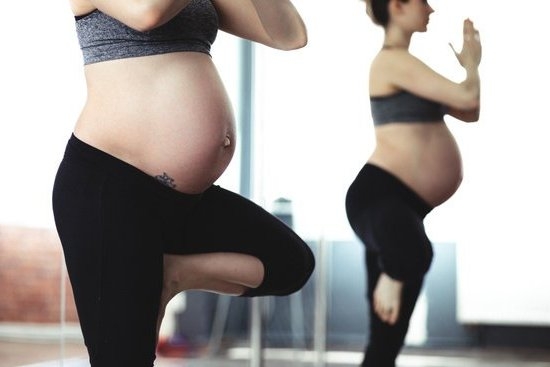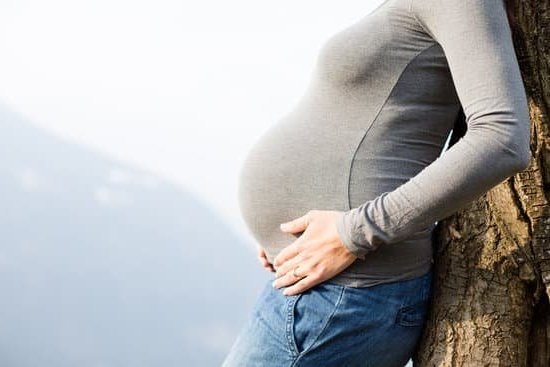Introduction
Twin pregnancies are an exciting and special thing, but this type of pregnancy may also come with its own set of challenges. It can be overwhelming to think about preparing for two babies at the same time if you’ve just found out that you’re expecting twins. But it’s important to remember to take things one step at a time and know that you will have tremendous support from your friends and family as well as your medical team. It is helpful to educate yourself on the various ways in which you can detect whether or not you are pregnant with twins so that you can properly prepare both physically and mentally for this unique journey.
There are several methods available to expectant mothers looking to detect if they are pregnant with twins or even more multiples. Early ultrasounds help doctors diagnose twins in utero through visual confirmation, detecting both ovulated eggs in the womb or observing more than one heart beat on the scan. Other methods can be done by testing for elevated levels of certain hormones such as Human Chorionic Gonadotropin (hCG), Alpha-fetoprotein (AFP), Unconjugated Estriol (uE3), and Inhibin-A which all provide evidence that could potentially point towards a twin pregnancy depending on their concentration level. Additionally, some women experience physical symptoms such as faster weight gain, extreme nausea/vomiting, larger uterus size than expected for gestational age, early fetal movement, increased fetal activity & kick count on ultrasound, more frequent urination and dull abdominal pain just below the rib cage due to excessive stretching of the round ligaments which surround each growing fetus.
Once it is established whether or not a woman is carrying multiples, her next steps should involve proper management techniques such as dietary adjustments, nutritional supplements, and careful monitoring of maternal–fetal health throughout each trimester to ensure that both mother and babies remain healthy during their entire journey together! If a woman has identified early on that she is expecting twins she will likely need additional prenatal care; this includes extra doctor appointments & tests in addition to optimized nutrition for fetal growth & development purposes during pregnancy. In addition, a mother-to-be should begin researching potential childcare arrangements & lifestyle decisions needed after delivery as well so there’s no last minute scrambling once those precious little bundles arrive home!
Signs and Symptoms of Carrying Twins
Although there is no sure way to know if you are carrying twins without an ultrasound until you begin to show outward signs, there are a few physical symptoms which can serve as indicators that you may be pregnant with two babies. One of the more obvious telltale signs is a larger than average bump for gestational age in comparison to other women. This could be due to carrying extra amniotic fluid for twins rather than just one baby. Other physical symptoms may include increased morning sickness and exhaustion, since your body does need additional energy to nourish two growing fetuses instead of one. Women who carry multiples also tend to feel their babies move earlier than those who only have one fetus. Several tests can also be done during pregnancy scans, such as measuring the size of your uterus and comparing it to your expected due date which can give some indication of how many fetuses you may be carrying. If you experience any or all of these unusual symptoms and they do not subside after a few weeks, then contact your doctor immediately so they can confirm whether or not it is indicative of a twin pregnancy or something else.
Ultrasound Imaging to Detect Twins
One of the most reliable ways to tell if you are pregnant with twins is through ultrasound imaging. This simple and relatively painless procedure uses high-frequency sound waves to generate images that can reveal how many fetuses are in the womb. Most 2D ultrasounds can reveal twins after only 6 weeks, but 3D and 4D ultrasounds offer professionals an even better view of what’s happening inside your uterus. These types of scans use higher frequency sounds which allow them to capture a more detailed picture – they can often detect twin pregnancies as early as 8 weeks!
During this imaging, your healthcare provider will make sure everything looks normal and healthy, as well as verify the number of babies in utero with a greater degree of accuracy than ever before. If two heartbeats are detected within one image, then it’s highly likely that you’re expecting twins! It is important to note though that the accuracy of this imaging method varies based on each woman’s body type, strength of the ultrasound machine being used, and other factors. Other signs or symptoms such as higher hCG levels or double measurements on fundal height could also indicate a twin pregnancy without undergoing an ultrasound. That said, ultrasound imaging remains the most reliable tool for detecting multiples during pregnancy.
Blood Tests to Diagnose a Twin Pregnancy
A blood test can be a reliable way to determine if a pregnant woman is carrying twins. There are two tests commonly used to diagnose a twin pregnancy: the maternal serum screening (MSS) and an ultrasound scan. The MSS measures hormone levels in a mother’s blood that tend to increase with multiple fetuses, including human chorionic gonadotropin (hCG), unconjugated estriol (uE3) and alpha-fetoprotein (AFP). Based on the results, healthcare professionals can determine if there is more than one baby present in utero.
However, there are also some drawbacks associated with this method of diagnosis. Although it may be helpful for detecting high-risk pregnancies, the MSS has been found to be less accurate compared to an ultrasound scan when determining if a woman is carrying twins. Additionally, certain medical conditions—such as obesity and diabetes—can interfere with hormone levels and impact the reliability of these blood tests. Moreover, some women may receive false positive results; i.e., they may be told they are pregnant with twins when they only have one fetus in their uterus—a situation that can lead to unnecessary stress and anxiety for both mothers and their doctors.
Overall, while the use of MSS provides some potential advantages for diagnosing a twin pregnancy, healthcare professionals must exercise caution when relying solely on this technology. It is important for health care providers to consider both sides of the issue carefully before making any definitive statement about whether or not a mother-to-be is expecting more than one child at once.
Genetic Tests to Identify Twins
Genetic tests to identify twins are gaining popularity as a way to confirm whether or not you are pregnant with multiples. Typically, this testing means working with a doctor to collect a sample of your blood for analysis in the lab. The test looks for signs of two copies of certain genes from the parents, indicating that there could be two or more fetuses. If the results come back positive, your doctor will likely use advanced techniques like an ultrasound scan or hormone measurements to confirm multiple pregnancies. Keep in mind that even if genetic testing is used, it is still possible to have a false-positive result if, for example, the mother has one baby and both carry the same specific gene variants. So these tests should be discussed carefully with your healthcare provider before making any decisions based on them.
It is also important to note that genetic testing may not be accurate in all cases and further investigation may be necessary. In cases where there is potential doubt about twinning due to weird foetal measurements during scans, fetal tissue sampling might be required; this involves the removal of small amounts of tissue from each fetus via amniocentesis or chorionic villus sampling (CVS). This can allow for DNA analysis of the samples and therefore determine which individual fetuses are present in a multiple pregnancy – providing definitive evidence if there really are two or more babies developing within the womb.
Unexpected Twins
Twin pregnancies are both exciting and challenging. Identifying twins can reduce the risk of complications associated with multiple birth such as premature labour and low birth weight. However, some women experience ‘unidentified twin pregnancies’ where neither mother nor doctor were aware that two babies were growing in the womb.
With unidentified twin pregnancies, it is impossible to predict the eventual outcome since there are no indications from ultrasounds or other screenings to indicate that there may be more than one baby developing in the mother’s womb. Still, there are certain signs that mothers should be aware of when it comes to a twin pregnancy. These include an enlarged uterus, morning sickness and fatigue that is worse than what is normally experienced during a single pregnancy, and even gaining excess weight unexpectedly quickly during the first trimester. To confirm the presence of twins in a pregnancy, an ultrasound scan is required; which would detect two distinct heartbeats within the womb, as well as any extra amniotic sac(s) which may be visible on scans of early gestation whereas they may not have been seen in earlier tests.
Though unexpected twins can introduce stress onto a family who did not plan for them, there are also many benefits to having unidentified twins. As already mentioned above, twin pregnancies carry increased risks such as preterm births, however having knowledge about this ahead of time can allow for proactive medical care that could lead to better outcomes for mother and babies alike. There can also be an instant bond between multiple children born at once when compared to relationships built with siblings born farther apart in age or space. Lastly, while being completely unexpected twins often introduce laughter and humor into life allowing families to appreciate these little surprises with all their hearts!
Advice for Expectant Mothers of Twins
If you suspect that you may be pregnant with twins, there are several medical tests that you can take in order to confirm this suspicion. An ultrasound is a common way to determine if you may be expecting two babies. Your doctor will explore the number of gestational sacs and fetal heartbeats present on the screen during the scan. If there appears to be more than one fetus, then this could indicate the presence of twins.
In addition to an ultrasound, your doctor can use different blood tests like a quadruple or double marker test to determine if you are pregnant with twins by examining hormone levels in your blood. Genetic screenings such as amniocentesis or chorionic villus sampling (CVS) tests can also be used for further confirmation as well as checking for any health issues among the fetuses.
Once pregnancy with twins is confirmed, it is important for expectant mothers to prepare and stay healthy throughout their pregnancy journey. Eating a balanced diet with adequate amounts of carbohydrates, proteins, vitamins and minerals will help supply essential nutrients to both babies and mother alike – foods rich in fiber can also aid in digestion and reducing fatigue. Additionally, getting plenty of rest and exercise have been shown to benefit pregnant women who are carrying multiples as it can cultivate both energy levels and overall wellbeing. As pregnancy with twins progresses, regular visits to your obstetrician for monitoring will ensure the healthiest possible outcome for both baby(ies) and mother.
Conclusion
The probability of a twin pregnancy can seem intimidating, and it’s important to be informed. Knowing the related statistics is always helpful when considering the possibility of having twins. There are certain factors that could increase a person’s chances such as maternal age, family history, and fertility treatments. However, these are not certain indicators of pregnancy with multiples. The only definite way to know if you are pregnant with twins is by a ultrasound confirming more than one baby in the womb. The most important thing to remember is that whether you are experiencing a single or multiple pregnancy, proper prenatal care is essential for a healthy pregnancy and safe delivery. Consulting your doctor if you think you might be pregnant with twins will provide the best information on this complex subject.

Welcome to my fertility blog. This is a space where I will be sharing my experiences as I navigate through the world of fertility treatments, as well as provide information and resources about fertility and pregnancy.





